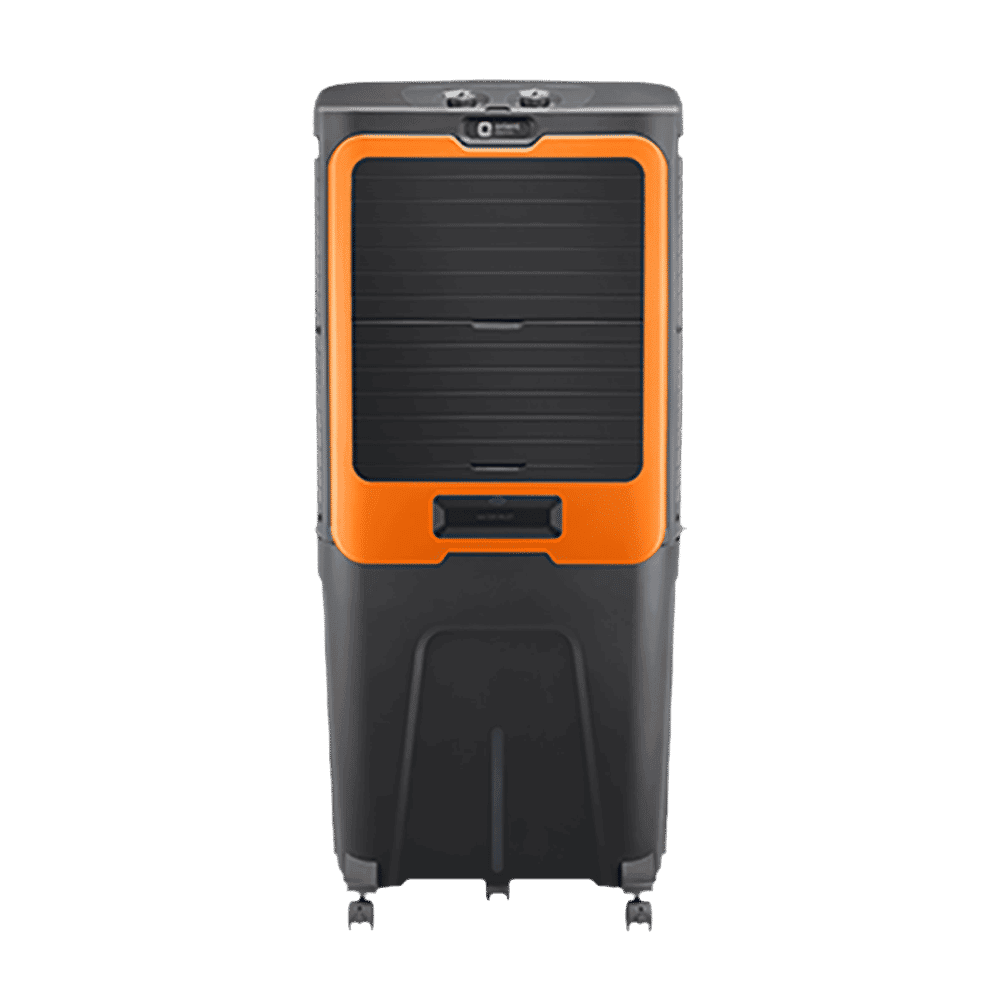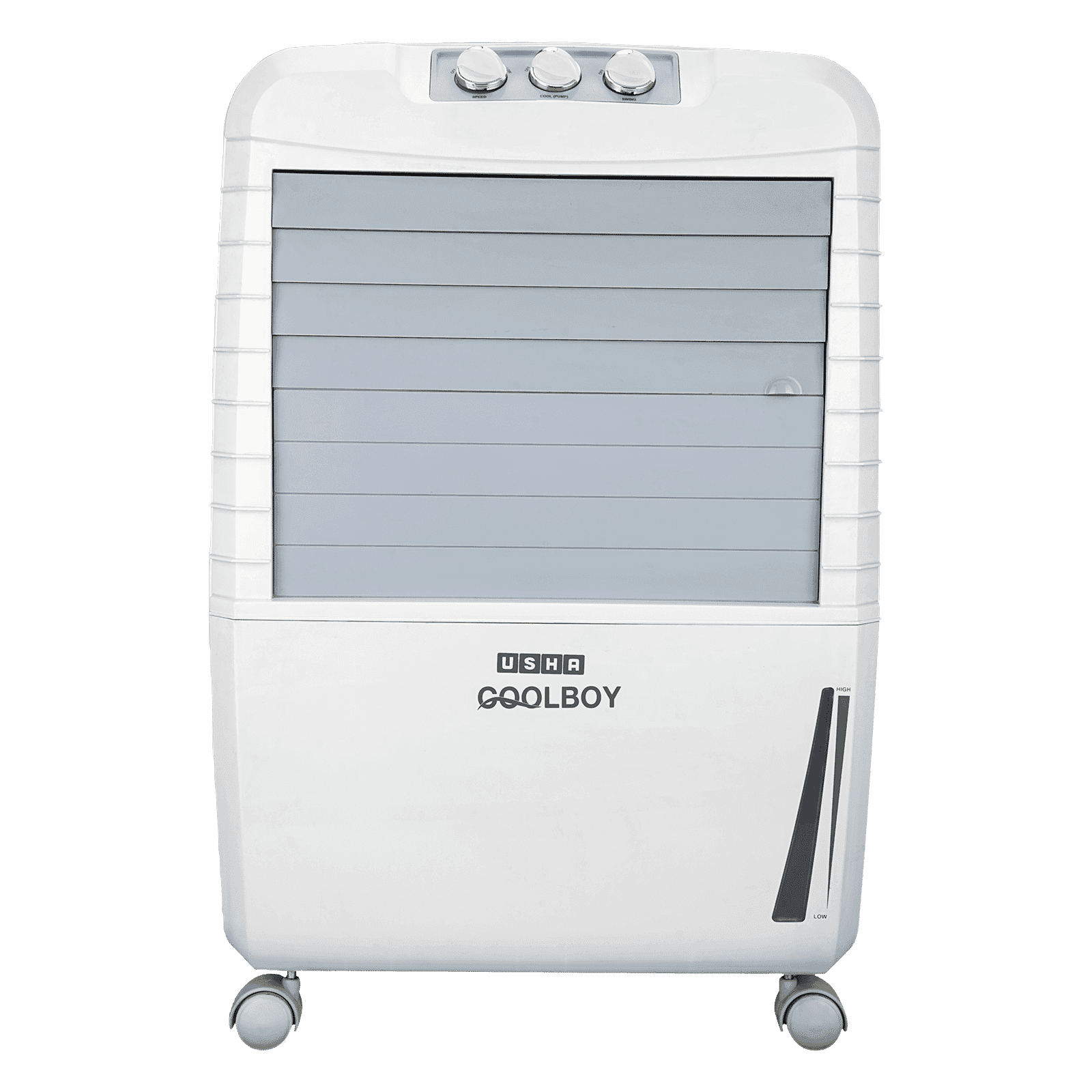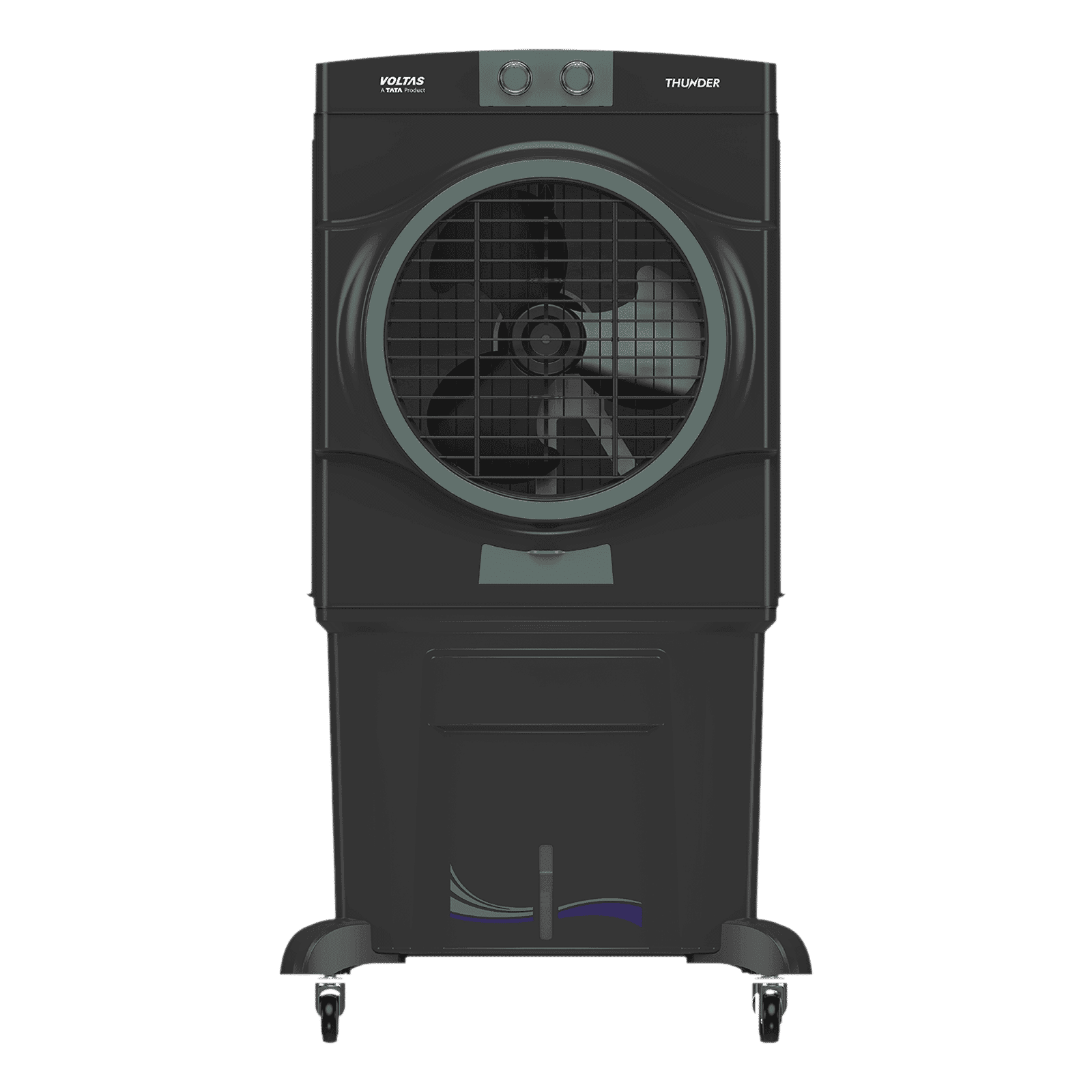
Home Appliances
•07 min read

Buy Orient Ultimo 88 Litres Desert Air Cooler with Aerofan Technology (Ice Chamber, Dark Grey) online at best prices from Croma. Check product details, reviews & more. Shop now!
Selecting the perfect home cooling solution is essential when the temperature rises. Understanding the air cooler advantages and disadvantages can help you make an informed decision between these and other home cooling solutions. In this guide, we delve into what air coolers are, how they work, and offer balanced insights into their benefits and drawbacks to empower you in choosing the best option for your needs.
Air coolers are devices that help reduce the ambient temperature using the natural process of evaporation. Unlike traditional air conditioners that rely on refrigerants and compressors, air coolers use water and a fan to circulate cool, moist air. This makes them a popular choice for households seeking an eco-friendly and cost-effective solution. When comparing air cooler vs air conditioner, it’s essential to note that while air conditioners offer rapid and extensive cooling, air coolers are more energy efficient and carry environmental benefits.
The cooling process in air coolers is based on the principle of evaporative cooling. Water passes through a cooling pad and gets evaporated by a fan, resulting in cooler air being blown into your room. The primary components include a water tank, cooling pads, and a fan mechanism. This method harnesses natural processes, making air coolers both affordable and environment-friendly.
One of the main air cooler benefits is their low energy consumption when compared with air conditioners. This energy efficiency means reduced electricity bills and a lighter load on the environment. The absence of heavy compressors and the use of ambient water makes these devices a cost-effective solution for daily cooling needs.
Air coolers tend to be much more affordable in terms of both initial investment and ongoing operational costs. This affordability makes them an ideal choice for those on a budget. The investment not only delivers immediate cooling comfort but also promises long-term savings, making them a popular home cooling solution among families and young professionals alike.
Air coolers are best suited for dry, hot climates where their cooling effect is maximised. In arid regions, the added benefit is the increase in humidity provided by the evaporative process, which can significantly improve comfort levels. However, in extremely humid environments, the air cooler advantages and disadvantages become more pronounced as the cooling efficiency may diminish.
Apart from energy and cost benefits, air coolers also promote better indoor air quality. They naturally filter out dust and circulate fresh air while adding moisture, which is beneficial in dry conditions. Additionally, they do not use harmful refrigerants, making them an eco-friendly choice that aligns with sustainable living goals.

Buy USHA COOLBOY 35 Litres Personal Air Cooler with Inverter Compatible (Thermal Overload Protection, White) online at best prices from Croma. Check product details, reviews & more. Shop now!
While air coolers offer many desired features, their cooling capacity can be limited in extremely humid climates. The cooling process becomes less effective when the ambient humidity is high. Additionally, cooling larger spaces can be challenging, meaning these systems may be best suited for smaller rooms or localized cooling rather than whole-house solutions.
Another consideration is the need for regular air cooler maintenance. To maintain optimal performance, users must regularly refill water, clean the pads, and occasionally service the mechanism. Neglecting these tasks can lead to mold and bacteria growth, which could impact indoor air quality and overall appliance longevity.
Compared to air conditioners, air coolers can be somewhat noisy due to their fan-driven design. Although the noise levels are generally moderate, they might be a concern in environments where silent operation is a priority, such as bedrooms or study areas.
When evaluating the pros and cons of air coolers in contrast to air conditioners, it becomes clear that both systems have distinct advantages. Air conditioners offer rapid and uniform cooling over a larger area through advanced technology, but they come at higher operational and installation costs. In contrast, air coolers excel in energy efficiency, cost-effectiveness, and are easier on the environment. Scenarios where energy savings and natural cooling are prioritized tend to favour air coolers, while situations demanding stringent temperature regulation may lean towards air conditioners.
Focusing on evaporative cooler advantages reveals benefits such as lower energy consumption and increased affordability. Their simpler design not only reduces the initial cost but also minimises the long-term costs associated with maintenance and energy usage. For many households, these benefits make air coolers a highly attractive home cooling solution.
Expert Tip from Tata Neu
Did You Know? Regular maintenance not only extends the life of your air cooler but also ensures optimal performance and air quality. At Tata Neu, we offer expert guidance and ZipCare services to help you maintain your home appliances effortlessly.
Before choosing an air cooler, consider your specific cooling needs. Evaluate factors such as room size, regional climate, and usage frequency. For smaller rooms or apartments in dry climates, air coolers provide effective and efficient cooling. However, for larger spaces or highly humid areas, you might need to assess if additional cooling measures are necessary to ensure comfort.

Buy VOLTAS Thunder 85 Litres Desert Air Cooler with Thermal Overload Protection (3 Speed Control, Dark Grey) online at best prices from Croma. Check product details, reviews & more. Shop now!
Effective air cooler maintenance is key to ensuring longevity and consistent performance. Regular cleaning of the filters and cooling pads, frequent water refills, and periodic check-ups can prevent build-up of mold and bacteria. This not only helps maintain air quality but also prolongs the appliance’s durability, ensuring you enjoy a continuous and efficient cooling experience.
When planning your budget, consider both the initial cost and long-term savings of air coolers. Their lower purchase price and reduced energy costs contribute to significant savings over time. For households looking for reliable home cooling solutions without compromising on eco-friendliness, these systems are an attractive option. As a bonus, customers can earn NeuCoins with their purchases, which further enhances the value proposition offered through Tata Neu.
Air coolers are energy-efficient, cost-effective, and enhance indoor air quality, making them especially beneficial in dry climates.
Regular maintenance, including cleaning and water refills, should be done every few weeks during the cooling season to prevent mold and ensure efficient performance.
Air coolers are less effective in humid climates due to the reliance of their cooling process on the evaporation of water.
Air coolers generally have a lower initial cost and operational expenses, presenting a budget-friendly option for many households.
Yes, they help filter dust and circulate fresh, moist air, which is particularly beneficial in dry environments.
In summary, the air cooler advantages and disadvantages discussed here highlight that while air coolers offer energy efficiency, cost-effectiveness, and environmental benefits, they also come with certain limitations like reduced efficacy in humid conditions and the need for regular maintenance. Assessing your space and cooling needs, and considering both the benefits and drawbacks, will lead you to a more informed cooling solution choice. Explore a range of cooling systems and take advantage of expert support to enhance your smart home experience.